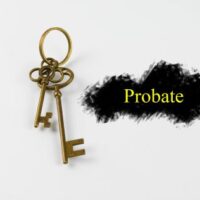Author Archives: Jay Butchko

What is a Living Will in Washington?
Nobody wants to think about the end of life and it is easy to put it off, particularly for those who are young and healthy. However, careful planning can ensure that your final wishes are fulfilled and that you are treated with dignity. While living wills are an important part of any estate plan,… Read More »

Do All Estates Have to Go Through Probate in Washington?
Probate is a legal process overseen by the courts that is sometimes required after a person passes away. Probate gives the personal representative of a person’s estate the authority to pay the taxes and debts of the deceased, collect their assets, and ultimately transfer assets to beneficiaries. The personal representative of the estate is… Read More »

4 Things You Need to Know About Washington State Medicaid Planning for 2024
For many Washington residents aged 65 and older, the cost of receiving long-term nursing home or other institutional care is prohibitively expensive. Medicaid can provide benefits to cover these costs. But there are strict income limits and other eligibility requirements a senior must follow in order to qualify and remain eligible. So if you… Read More »

Does a Revocable Trust Create a “Property Interest” for the Contingent Beneficiaries?
Revocable trusts are meant to provide a high degree of flexibility when it comes to estate planning. That is to say, if you create a revocable trust, you are essentially free to amend, alter, or even revoke the trust at any time during your lifetime. The trust itself does not become irrevocable until your… Read More »

Does Your Washington Business Need to Comply with the Corporate Transparency Act?
Starting on January 1, 2024, certain legal business entities registered in the State of Washington must comply with the new Beneficial Ownership Information Reporting Rule previously announced by the U.S. Treasury Department’s Financial Crimes Enforcement Network (FinCEN). Moulton Law Offices recently published an online tool to assist you in determining whether your business entity… Read More »

Why is Estate Planning for Single People So Important?
Many people are getting married later in life, whether or not they have children before then. Due to this, more people are spending a greater portion of their life single. Being single, though, does not mean that it is not important to create an estate plan. Below, one of our Spokane estate planning lawyers… Read More »

Things to Know About Funding a Trust
At one time, trusts were only implemented by the very wealthy. Today, though, people of all asset values and income levels use trusts to ensure their assets are protected, maintain a level of privacy regarding how assets are distributed, and help loved ones avoid the probate process. Trusts have many advantages. Not only do… Read More »

When Should You Start Estate Planning?
Everyone has an estate, whether they know it or not. Your estate is made up of everything you own, including your home, car, bank accounts, retirement accounts, investments, life insurance, personal possessions, and furniture. Regardless of how small or how large your estate is, it is important that you make a plan for it…. Read More »

Four Common Myths About Estate Planning
Approximately two-thirds of Americans do not have an estate plan in place. There are likely many reasons for this, but one of the most common is that people mistakenly believe some of the biggest myths surrounding this type of planning. Below, one of our Kennewick estate planning lawyers outlines what these are, and the… Read More »

Three Questions to Ask Yourself when Estate Planning for Your Children
All parents should have an estate plan that outlines who will raise their children and make important decisions for them in the event that they pass away. If you have not yet created an estate plan that includes plans for your children, it may be because you do not know where to start. This… Read More »
